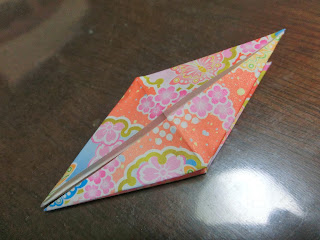This year is going to finish soon.
I had various things in this year. This blog had one-year anniversary.
Today, the viewers of my blog have been recorded "13400".
And people from 78 kinds of regions of the world have visited my blog.
I hope the viewers go beyond 23000 next year.
And one of the biggest things was to start writing stories more than ever.
I could not take time to do that at the end of the year though...。゚(゚´Д`゚)゚。
We eat this soba on December 31st. We eat soba, hoping that we can live long
in our lives.
in our lives.
I translated the part of my work. I attach it on this last post of this year!
This is not for children. I just tried to make a story of Samurai period.
I will attach the next one in the New Year.
The aim of the 2014 is to write more stories. Don't you think the only way
to gain the fruitful life is to spend time for what you want to be in the future?
We say Yoi Otoshiwo! (よいお年を!=よいおとしを!)to everyone.
It means like "Have a good year!"
Hey everyone, Yoi Otoshiwo!
to gain the fruitful life is to spend time for what you want to be in the future?
We say Yoi Otoshiwo! (よいお年を!=よいおとしを!)to everyone.
It means like "Have a good year!"
Hey everyone, Yoi Otoshiwo!
The sound of dust ~1~
A drop of water fell on Jougen’s forehead. Jougen wiped forehead. He knew that it was large drop of rain from the touch of the finger-tip. He rose immediately. He was taking a rest under the tree near a small temple.
The large drop of rain spread over the square of the precincts
of the temple. He hid under the small roof of the temple.
“We have had a heavy rain quite often recently. That’s
unusual…”
A monk appeared
in a corridor.
“This sky shows the unrest of this world.”
Jougen said to the person with his face tuned upward
to the sky. Jougen didn’t know the color of the sky facing then. Moreover, he
had never seen the grain of the wooden corridor. He went up the steep stairs to
come to the temple, called Saimyou-ji . However, he had never seen the color of
the stone stairs. He had never seen the color of the rosebay that was
flourishing besides the stone stairs. Jougen was a natural blind person.
“Where are you going?”
The monk in Saimyou-temple asked to Jougen.
“The house ahead…”
“You mean, Mr. Suenaga’s house.”
“I don’t know his name.”
The monk got
surprised to know the blind man was about to visit the house without knowing the
lord of the house.
“His name is Suenaga.”
“I see.”
The rain
stopped. A lot of sun light came from the break in the cloud all over the area.
Jougen drawed his instrument, “Biwa” close to him. And
he wiped the Biwa on his towel.
“Mr.”
Jougen heard
the monk’s voice from his back.
“The samurai you’re going to meet get mad easily. You
need to pay attention to your words.”
“Oh, I see. I appreciate it. But I don’t spare my
life.”
Jougen held
his Biwa in his arms and stood up. He started to walk slowly. An aged samurai
was unnoticeably
standing there. There were a
lot of wrinkles on the aged samurai’s face. His armor and helmet was broken a bit. The
aged samurai lead Jougen
to outside the temple.
“Mr. Jougen,
this is Suenaga-sama.”
The aged
samurai asked Jougen to sit down in front of the host and went out the room.
“Mr. Jougen, I know the reputation of your
storytelling. I would like you to show me your storytelling.”
“Certainly, but, the salary won’t be low. We can
survive by such fee.”
“Of course, I know. I’m ready.”
After having
remained silent for a while, Jougen took hold his Biwa in his stomach. And it
became silent a few moments. He was mumbling. He seemed to talk with someone.
And then he made a frown and sounded a string of Biwa with the plectrum. The
room echoed with the sound of a string. Jougen started to sing.
The sound of bell from Gionsyouja (Buddhist temple)
It reminds of impermanence
The
blossoms of the sal-tree proclaim that prosperity is subject to decline.
Insolent
men are fated to go to their doom.
It
is the same in ephemeral
After he finished the foreword, the room fell
silent again. Suenaga gazed at Jougen’s storytelling and said.
“Mr.
Jougen, I would like you to do “Nasuno Yoichi (the name of samurai)”.
Jougen
didn’t say anything. However, he suddenly sounded a string again…
To be continued
Thanks for reading!
https://www.facebook.com/SeeMyJapan
Thanks for reading!
https://www.facebook.com/SeeMyJapan

















































